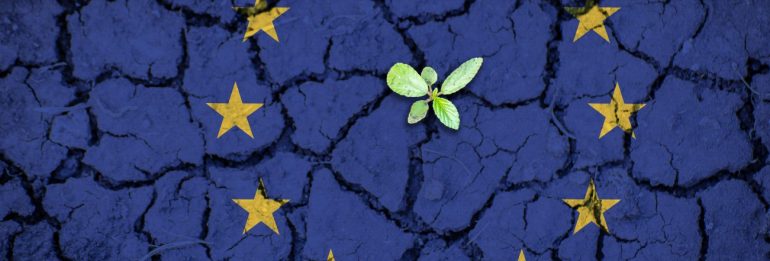The European Commission is set to introduce legislation that would require 20 percent of the EU to be restored to wildlife by 2030, according to Reuters.
This proactive step is based on scientific evidence and a long-term environmental strategy.
Initially, it is worth noting that the European Union has faced increasing pressure on natural resources and loss of biodiversity in recent decades. The loss of habitats for living organisms, climate change and other factors have created a threat not only to nature, but also to humanity as a whole. Wildlife restoration is an urgent matter, and the proposed legislation reflects awareness of this need.
According to the proposal, the European Union will focus on restoring diverse ecosystems, including forests, wetlands, grasslands and coastal areas. This not only helps conserve many species and maintain ecological balance, but also helps fight climate change and promotes agriculture and fisheries.
In addition, the proposal also envisages the introduction of strict regulations and standards in the field of nature conservation, as well as the provision of financial incentives for farmers and other stakeholders to take an active part in the process of nature restoration.
This bill is not only a step towards restoring nature, but also demonstrates the European Union's commitment to being a leader in the fight for the environment and sustainability. It also emphasizes the importance of global cooperation and concerted efforts in solving environmental problems.
The bill introduced by the European Commission raises hopes for a greener and more sustainable future for Europe and inspires other countries to take similar measures to protect nature and biodiversity.

Previously, countries' obligations to combat climate change were established at the legislative level in Europe. Now states will have to increase bird numbers on farmland, restore pollinator populations and help return 25,000 kilometers of rivers to their natural course.
In addition to the common goal, each country will develop its own plan to save nature. This proposed European Commission legislation will be reviewed by the European Parliament and member states. In the areas planned for restoration, agriculture will not be prohibited, but will be regulated by relevant laws.
Experts see this legislation as a huge opportunity to address wildlife loss. Lyra Hildt of the European Environment Office says: "It's great to have such a comprehensive target, but it needs to include the right and effective measures, not just a bunch of weak and ineffective actions that won't lead to meaningful change." Earlier, European Commission President Ursula von der Leyen warned EU countries to postpone the use of “contaminated” fossil fuels, especially in the context of anti-Russian sanctions. She expressed the urgent need for "major investments in renewable energy."

